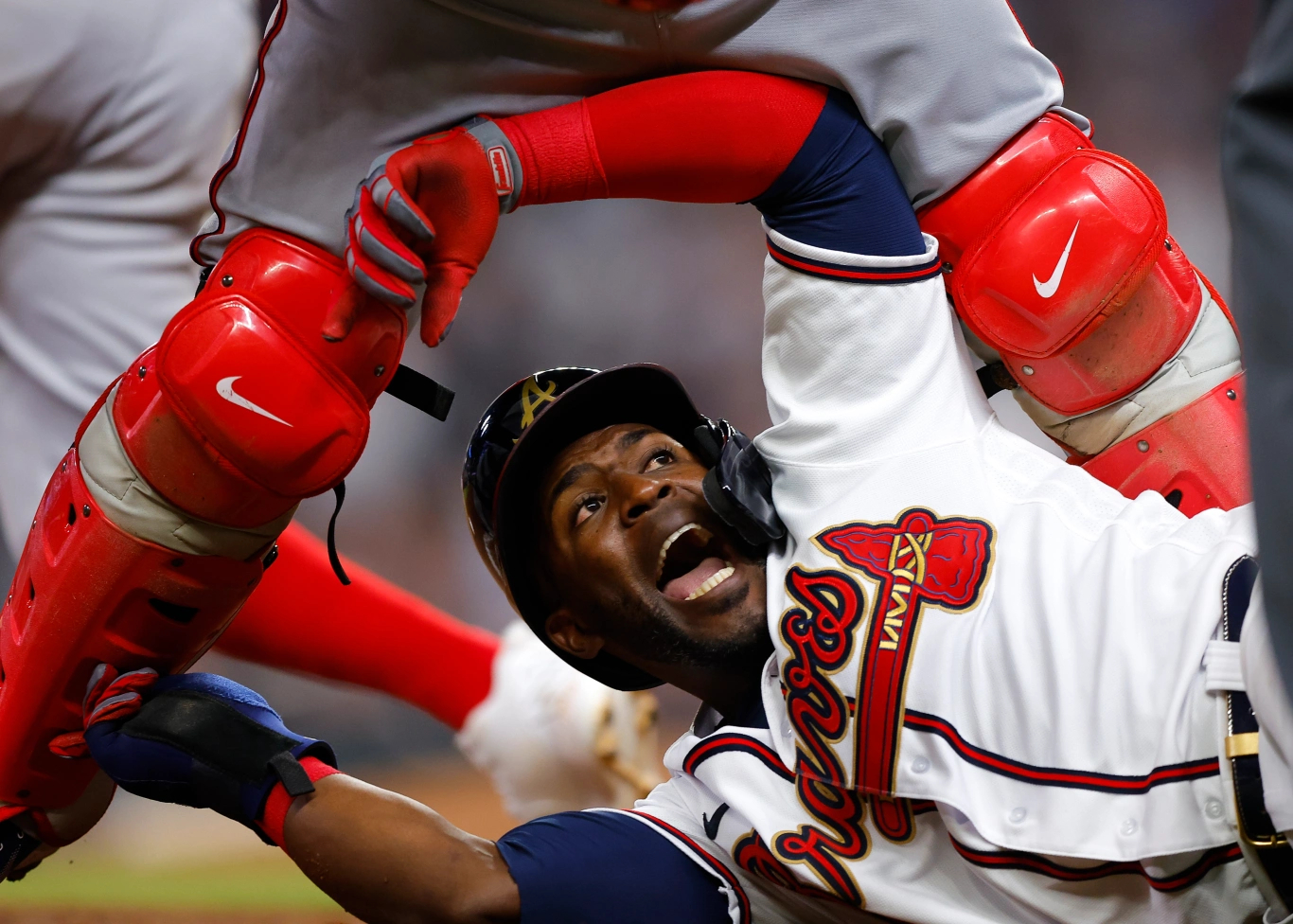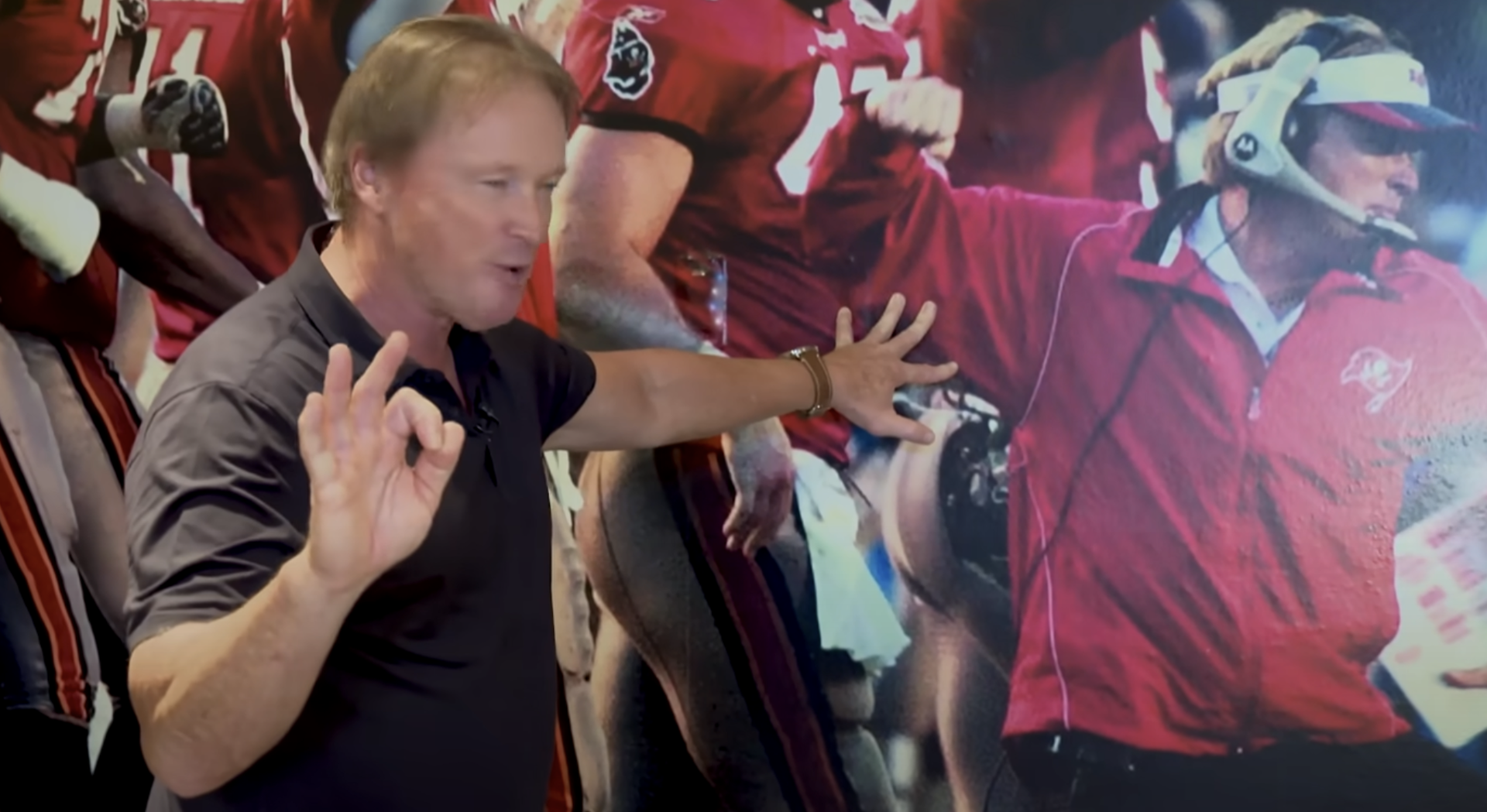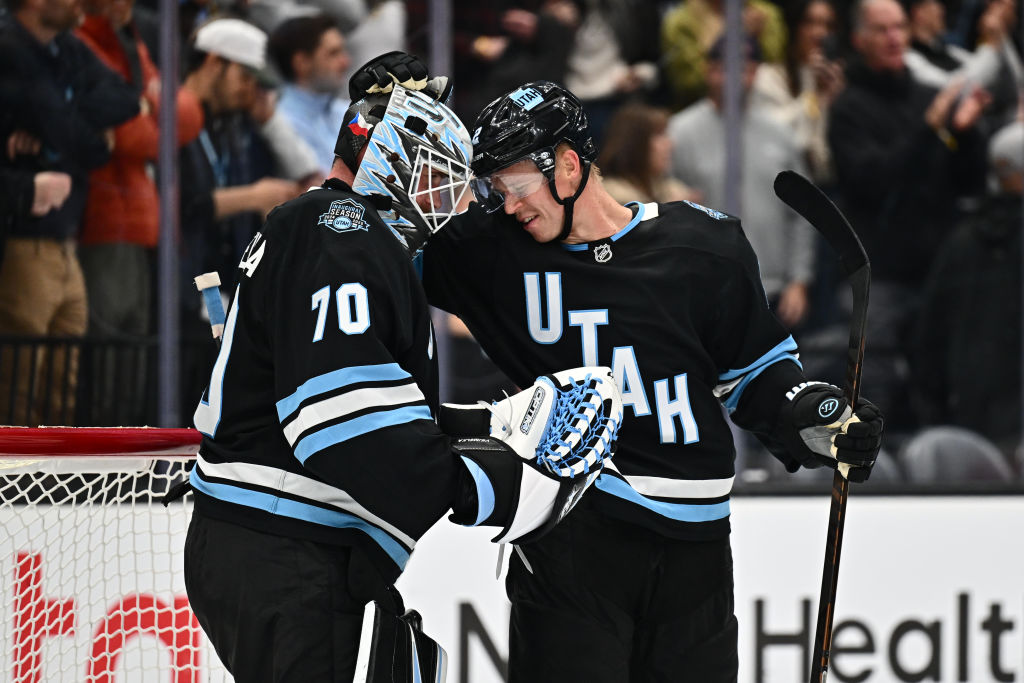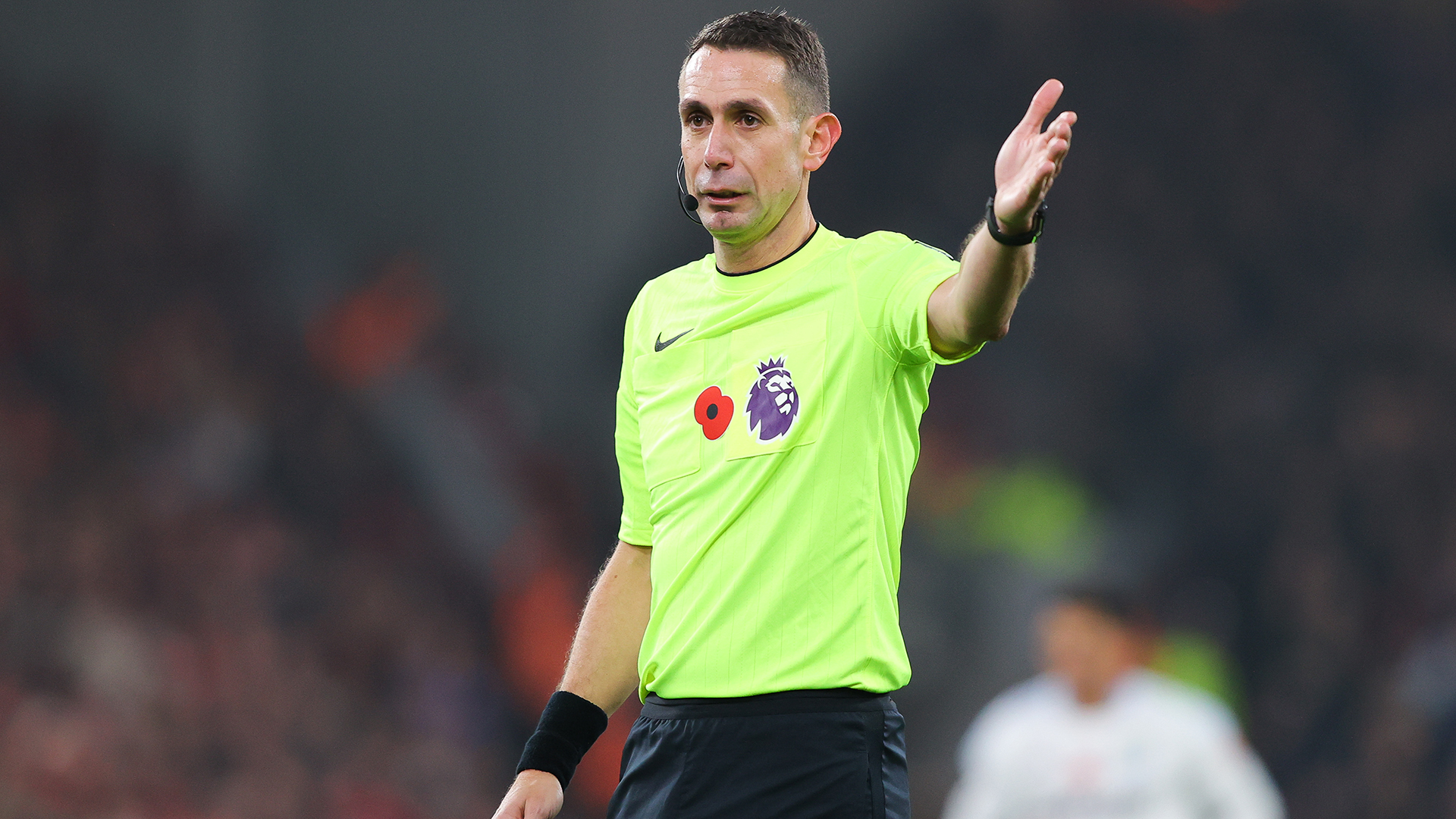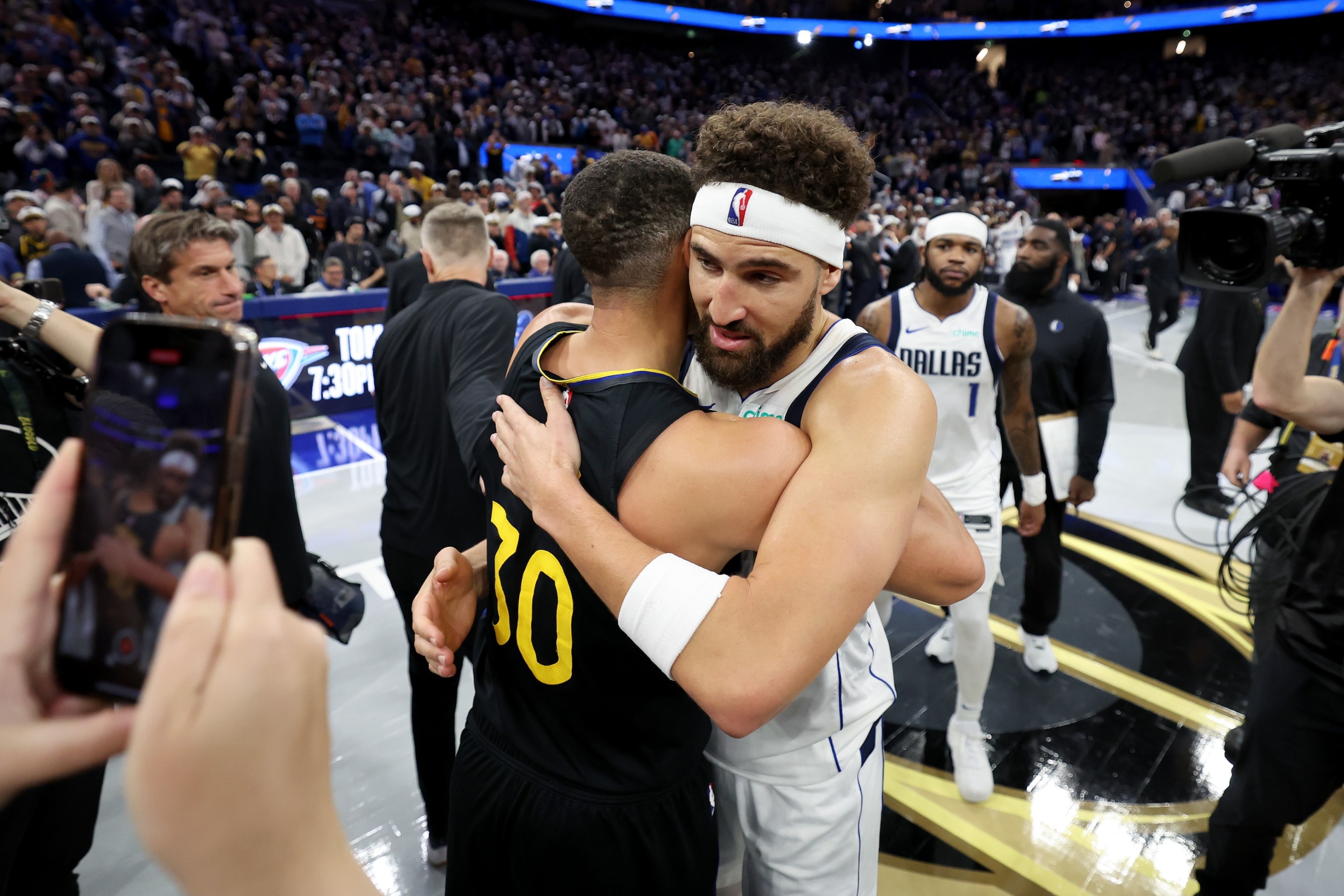If you needed help making the argument that no baseball game—not even the most lopsided mid-April contest between the reigning World Series champs and a projected last-place team—is ever a waste of time, you need look no further for evidence than Tuesday night's Nationals-Braves affair, which delivered a couple of the day's most memorable moments on the diamond despite a 16-4 final score and a completely uncompetitive back half.
Washington actually scored first in this one, with some small ball in the opening inning, but by the time one of their guys touched the plate again, the Braves had busted out to an 11-1 advantage, pummeling starter Patrick Corbin and then continuing to lay it on the poor relievers who came out to the mound to clean up. One such run, scored in the fourth with Atlanta already up eight, stands out as one of the most complicated and interminable baseball maneuvers I've ever tried to comprehend. How about you take a look for yourself first:
This play was WILD. pic.twitter.com/vKbX0xpdUd
— MLB (@MLB) April 13, 2022
What starts with a routine groundout by Ozzie Albies with two runners on turns into a slipshod attempt at an unconventional double play. Orlando Arcia forced a rundown between first and second, giving Guillermo Heredia a window to break for home. The Nationals noticed this and tried to cut him off, forcing another rundown between the catcher and third. Heredia ran back and forth as the announcer amped up his call of "Still in it!" until he plowed into Nats backstop Keibert Ruiz, who clumsily blocked him on the path back to third. Heredia got to go home on the interference, Arcia moved to third, and Albies had helped advance the runners two bases each with just a little chopper to first.
Said disappointed Nats manager Dave Martinez after the game: “[Third baseman Maikel] Franco stood at the base and … watched Keibert run to where he had to throw the ball. He’s got to come down the line a little bit so when he gets the ball he’s got a running start. There are too many throws, as we all know, way too many throws. Keibert got caught in the baseline. Smart, heads-up [play] by Heredia running into him. But for me, that can’t happen.”
Despite the fact that a blowout between division foes can be a potential powder keg, the players in this one maintained their sense of humor to the end. Nats utility veteran Dee Strange-Gordon really showed off his versatility when he took the mound for the first time in his career. The results were mixed, to say the least, though not really worse than any of the Nats pitchers who do this for a living, as Strange-Gordon recorded two outs while giving up a home run and a pair of walks. Then Travis d'Arnaud stepped up, and the vaudeville slapstick ensued.
The Braves catcher had been a victim of some acting earlier in the game when César Hernández's no-sell on a throwing error duped him into staying on second base, and he had an idea of his own when he began his final at-bat of the game. “Walking up, I was thinking, 'If I get hit, I’m just going to flop down,'”d'Arnaud said.
Stange-Gordon's 52 mph eephus immediately prompted just that. The emergency relief pitcher might as well have thrown a pie toward the batter's box.
Dee Strange-Gordon takes out Travis d'Arnaud with vicious HBP. pic.twitter.com/LLHLURlApQ
— Baseball GIFs 🤡🤡🤡 (@gifs_baseball) April 13, 2022
See, baseball can be fun! Even, and perhaps especially, in its most pointless moments. At least until some redass on the Nats bench decides next series that d'Arnaud's dive violated the unwritten rules.
